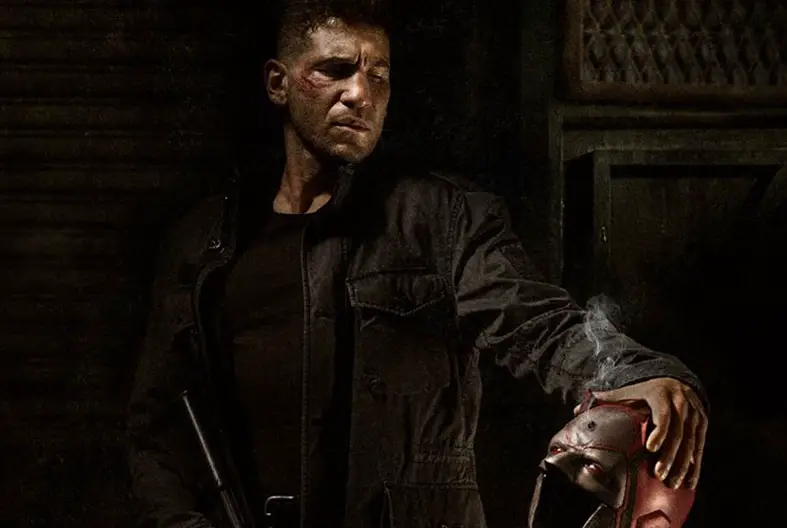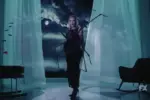It has been weeks since the Las Vegas shooting that left fifty people dead and over five hundred injured. As America still tries to deal with the catastrophic aftermath of this shocking act of domestic terrorism, many pop culture platforms have taken it upon themselves to censor some of their recent pieces of entertainment content.
These abrupt acts of censorship claim to, instead of honoring the victims impacted by the tragedy, protect and respect them out of the belief that they may still be healing. These networks and industries believe that outrageously violent content may interfere with the victims’ recovery and their restorative process.
With the shooting still fresh in everyone’s mind, there have been trigger warnings preceding some shows as well as complete removals of certain entertainment entirely. This response has left many questioning, especially over its necessity. Is this just false panic that will eventually add to the problem?
One of the first occurrences to make headlines (on twitter at least) was the removal of “The Punisher” from New York’s Comic-Con. The Punisher is an anti-hero in the marvel universe; much like Deadpool, he is a hero with villain-like, aggressive qualities.
Punisher is also a gun toting ex-marine whose talents include his mastery of a variety of different firearms and a loose trigger finger. In the wake of the Las Vegas shooting, Netflix and Marvel came together and decided to completely remove the Punisher and his display from the convention in fear that some of his paraphernalia may cause triggering effects on anyone in the crowd who may be effected by the tragedies that have taken place.
Netflix and Marvel released a statement published on Syfy’s website claiming that the appearance of the Punisher “wouldn’t be appropriate.” They continued with their condolences to those who are struggling during this trying time and essentially implied a sense of solidarity with those effected. Many critics responded by asking whether there has ever been a convenient time for “The Punisher.” Is there ever a “good” time for violence? If the issue with “The Punisher” is the amount of violence or the graphic usage of firearms, then when would be the “appropriate” time?
With shootings and domestic terror attacks happening so frequently, there would never be a time that “The Punisher” could be released. Every time Marvel and Netflix might attempt to show “The Punisher” and similar series to its viewers, another reason may pop up for its removal. Entertainment platforms would constantly have to focus on planning the release of their content in hopes that a terror attack wouldn’t occur immediately after or before. And while this may be stressful, it is also incredibly unrealistic and unfair to those in these positions.
As for “The Punisher,” it is worth noting that it is also a comic book in addition to a television show, and the comic book typically sees much less censorship. People cannot help but wonder if the removal of the comic books will be be next, and further more, in case of another terror attack that involves another weapon or another form of violence, if all of superhero comics that emphasize that particular weapon or fighting style will also be censored. In contrast, there is the genre “psychological thrillers” which may not have any graphic violence, but will still have disturbing ideas. At this rate, we may very well begin to censor “ideas.”
Following Marvel and Netflix’s bold move of removing “The Punisher,“ “American Horror Story: Cult“ censored one of its more recent episodes and paired it with a trigger warning preceding the airing. However, the episode was still very graphic to say the least, and was available on the FXX website in all its full, uncensored glory. “American Horror Story,” much like “The Punisher,” is notorious for its brutal, gore filled scenes and boundary pushing footage.
Anyone who has heard of “American Horror Story” knows that terms like shocking and disturbing are synonymous with the show. While the show is artistic in its own sense, it doesn’t tune down nor disguise its horror aspects. So the question remains over why we need to censor a show that is infamous for causing discomfort and portraying flagrant violence across America. Although violence shouldn’t be promoted, it is a large part of television, and society. Violence is arguably a central element in horror itself, and to censor it is to lose the very essence of what gore television is.
The Las Vegas shooting was a tragic event that is not to be disputed by any means. This is something that should be taken seriously; gun violence should be taken seriously. However, censoring television shows and other forms of entertainment for short periods of time as a reaction to violence will not help in the long run. This is a way of letting the tragedy control the society while we need the opposite. We should take actions in form of education and gun reform, empathy classes and trigger warnings. The society needs to teach its sons and daughters not to harm one another, and understand that television is fiction and full of embellishments.
Removing content such as “The Punisher” is a temporary fix, if even that. There may be victims out in the world who see Punisher as a hero and a fighter against mass shooters as opposed to a villain himself.
Viewers of American Horror Story are aware of the content that is produced and understand what type of images will be shown. There are too many tragedies in the world to try to “protect” everyone’s experiences. Most of the images shown on the news are more graphic than the ones that are seen on the television screen. It’s time to understand the power of censorship and how censoring the wrong things can potentially do more damage than good.
Many people use entertainment as a means to get away from the tragedies in America, and they don’t need to be reminded of the pain they feel in every television episode they watch and every event they attend. Let the people who want to enjoy their “graphic” entertainment enjoy it without guilt, and provide alternative options for those who need a break from all the intensity. Whether one uses entertainment as an escape from reality, or a way to delve deeper into it, entertainment is imperative in such adversities.

















